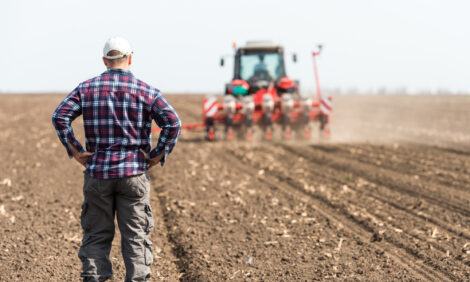



Study Examines Manipulation of Diet to Reduce Phosphorus in Manure
CANADA - Scientists at the University of Manitoba have initiated a project designed to reduce the environmental impact of swine production by formulating diets in a manner that will lower the phosphorous content of the manure, writes Bruce Cochrane.To reduce the level phosphorus in swine manure scientists with the department of animal science and the department of soil science are cooperating on a study in which swine rations will be formulated in a manner designed to reduce the phosphorus content of the manure and then that manure will be analyzed to determine its potential environmental impact.
Dr. Wole Akinremi, an associate professor with the Department of Soil Science says the Department of Animal Science will handle phase one of the study and then his department will take care of the second phase.
Dr. Wole Akinremi-University of Manitoba
The project is a multi-disciplinary project between two departments, that is the Department of Animal Science and the Department of Soil Science.
The principle scientist in this case is Dr. Martin Nyachoti of the department of animal science.
He's going to be conducting animal nutritional studies and then I'll be doing a study on the soil science aspect.
They'll be taking care of the front end of the animal in terms of looking at the different types of diet that to reduce the phosphorus in the manure.
We, the Department of Soil Science, will be taking care of the back end of the animal.
The feces and the urine that is obtained from this experiment is going to be sent for to our department for analysis and for incorporation into the soil so that we can study in detail and be able to give an idea in terms of what will be the environmental impact of this manure.
Dr. Akinremi says, if scientists are able to come up with a recipe for reduced phosphorus, it will be a tremendous benefit in terms of phosphorus loading to the soil and in terms of water quality.
He estimates the project will take two years, one year to complete the feeding trials and produce the manure and then another year to complete the analysis of the manure and field work.






